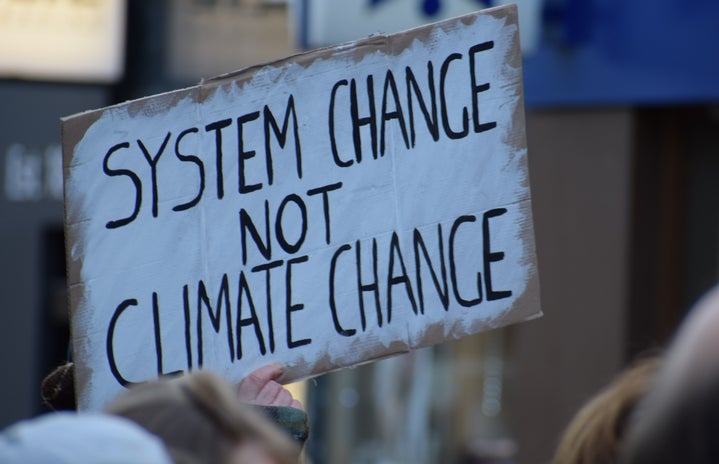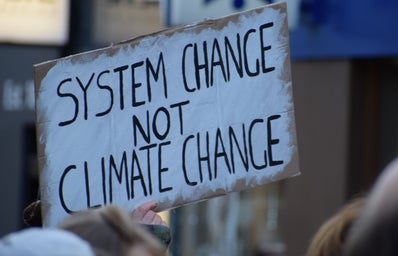In an ideal world, we could solve the climate emergency by simply bringing our cotton tote bag to Tesco, or dropping a metal straw into our next vodka sunrise. However, young people today live with the distressing reality that in spite of our best individual efforts, the rapid pace of human-fueled climate change means our shared environmental future is in peril. It’s not an easy reality to live with. For me, it sometimes feels like I have to choose between living a life of peaceful denial, and sacrificing my happiness to the grim realities of a deteriorating climate.
More and more people, especially teenagers, are suffering from what experts are calling ‘eco-anxiety,’ defined by the American Psychological Association as ‘a chronic fear of environmental doom.’ In many ways, eco-anxiety at a time of ecological crisis makes logical sense. But it is difficult to act effectively on climate change or to protect our wellbeing if we feel consistently overwhelmed, sad or paralysed by anxiety. Here are a few suggestions of how you can care about the climate while protecting your psychological wellbeing.
- Find a community. The experts’ consensus is that the best responses to climate change will be collective. Finding a group of people who are also passionate about protecting the Earth from the worst of climate change and acting with them can be both effective and profoundly helpful to your state of mind. Dr. Emma Lawrance, a fellow at Imperial College London’s Institute of Global Health Innovation, explains that ‘Many people report that actually finding that they are not alone in this thinking, talking to other people about it, finding like-minded communities, is really powerful.’
- Validate and talk about your feelings. Appreciate that it is normal and understandable to feel grief or anxiety about climate change, and try to share your thoughts and concerns with others. You may find that many of your friends are feeling a similar way.
- Do something, even if it feels small. At a psychological level, grounding yourself in practical, small-scale or local solutions can help raise emotional resilience in the face of climate anxiety. What’s more, climate scientist Michael Mann suggests that ‘small behavioural change can lead us down a path of further action. It’s the beginning, not the end, of engagement on climate.’ Although systems do need to change alongside individual actions, choices like reducing food waste, switching to energy-efficient systems and using sustainable forms of transport can make a big difference when enough people adopt them. A recent study found that the four actions which decrease your carbon footprint most significantly are eating a plant-based diet, avoiding air travel, living car-free, and having fewer children. Not all of these options might be available to you at the moment. Rather than feel guilty or overwhelmed, try to embrace whichever steps you can reasonably take at this time.
- Find green spaces. Spending time in green spaces has been demonstrated to reduce stress-related illness and lead to lower stress levels in general.
- Notice the hope. The plummeting cost of solar and wind energy means a renewables boom is likely on the horizon. The UN-REDD program is making strong progress fighting deforestation around the world. Plant-based alternatives are getting tastier and more common than was ever predicted. Acknowledging the seriousness of the climate crisis is important, but we should also pay attention to moves in the right direction.
Need more support? The Climate Psychology Alliance has brought together a list of resources for young people struggling with climate anxiety.


